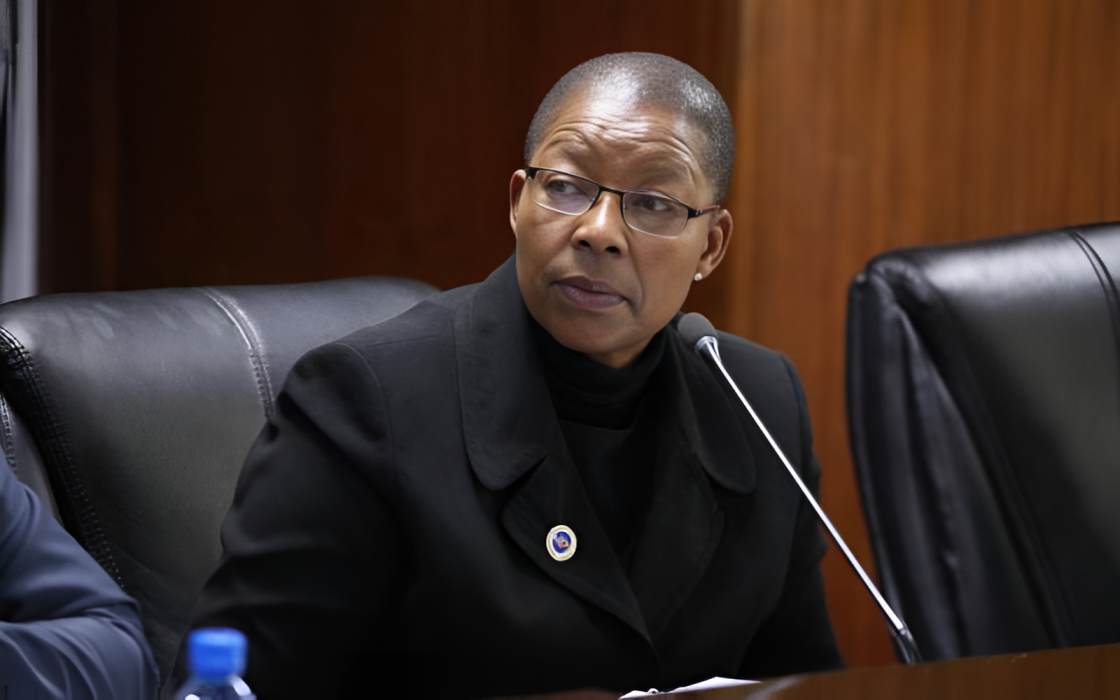News
“The Public Seal Is Still in My Office,” AG Oduor Dismisses Media Reports
“The custody of the Public Seal is clearly provided for by law, and that position remains unchanged. I am still in custody of the Seal, contrary to what has been reported in the media,” the Attorney General stated emphatically.

Attorney General sets record straight amid government confusion over custody of Kenya’s official seal
NAIROBI – Attorney General Dorcas Oduor has firmly dismissed widespread media reports claiming that Kenya’s Public Seal had been transferred from her office, declaring that she remains the lawful custodian of the critical government symbol.
Speaking to journalists on Thursday, Oduor sought to end days of confusion that had engulfed government circles over who holds the seal used to authenticate official state documents.
“The custody of the Public Seal is clearly provided for by law, and that position remains unchanged. I am still in custody of the Seal, contrary to what has been reported in the media,” the Attorney General stated emphatically.
The controversy began when reports emerged suggesting the seal had been quietly transferred to the Office of the Head of Public Service through proposed amendments in the National Administration Laws (Amendment) Bill, 2023.
The proposed changes would have stripped the AG’s constitutional authority over the seal, transferring it to the Head of Public Service.
Government Spokesperson Isaac Mwaura initially appeared to confirm the transfer during a May 19 press briefing, telling media that “the process is anchored in legislation, which recognizes the HOPS as the appropriate holder of the seal.”
However, in a dramatic reversal just three days later, Mwaura backtracked on his statement, clarifying that Parliament had removed the controversial proposal from the bill.
“The Public Seal is under the custody of the Attorney General as per Article 9 of the Constitution. This needs to go on record that the Public Seal is not with the Head of Public Service, it’s still with the AG and that is misinformation that came as a result of a process in Parliament and it was deleted,” Mwaura corrected on May 22.
The Public Seal, recognized under the Second Schedule of Kenya’s Constitution, serves as the government’s official authentication tool for state documents and carries significant legal weight in the country’s administrative processes.
Former Attorney General Justin Muturi has raised serious concerns about the attempted transfer, warning of potential accountability gaps.
“If documents can be signed and bear the public seal without the AG’s legal advice, that is a serious issue. I’m sure that they are avoiding accountability by transferring such matters to the HOPS office,” Muturi cautioned.
He alleged that the proposed changes were part of a broader strategy to circumvent legal oversight from the Attorney General’s office.
Addressing speculation about internal government divisions, Oduor dismissed claims of institutional conflict, emphasizing unity within the administration.
“As a government, we work together under the leadership of the President, as a united team,” she assured.
The mixed messages from government officials have drawn criticism from legal experts and opposition figures, who have questioned the administration’s coordination on constitutional matters.
The Public Seal controversy highlights broader concerns about institutional roles and the separation of powers within Kenya’s government structure, particularly regarding legal oversight mechanisms designed to ensure accountability in official government actions.
With Oduor’s definitive statement, the matter appears settled for now, though questions remain about how the initial confusion arose and what safeguards exist to prevent similar constitutional uncertainties in the future.
Kenya Insights allows guest blogging, if you want to be published on Kenya’s most authoritative and accurate blog, have an expose, news TIPS, story angles, human interest stories, drop us an email on [email protected] or via Telegram
-

 Grapevine2 weeks ago
Grapevine2 weeks agoRussian Man’s Secret Sex Recordings Ignite Fury as Questions Mount Over Consent and Easy Pick-Ups in Nairobi
-

 News1 week ago
News1 week agoTHE FIRM IN THE DOCK: How Kaplan and Stratton Became the Most Scrutinised Law Firm in Kenya
-

 Investigations1 week ago
Investigations1 week agoMulti-Million Dollar Fraud: Three Kenyans Face US Extradition in Massive Cybercrime Conspiracy
-

 Economy1 week ago
Economy1 week agoIran Demands Arrest, Prosecution Of Kenya’s Cup of Joe Director Director Over Sh2.6 Billion Tea Fraud
-

 Business1 week ago
Business1 week agoA Farm in Kenya’s Rift Valley Ignites a National Reckoning With Israeli Investment
-

 Africa2 weeks ago
Africa2 weeks agoFBI Investigates Congresswoman Ilhan Omar’s Husband’s Sh3.8 Billion Businesses in Kenya, Somalia and Dubai
-

 Grapevine4 days ago
Grapevine4 days agoA UN Director Based in Nairobi Was Deep in an Intimate Friendship With Epstein — He Even Sent Her a Sex Toy
-

 Politics2 weeks ago
Politics2 weeks agoSifuna, Babu Owino Are Uhuru’s Project, Orengo Is Opportunist, Inconsequential in Kenyan Politics, Miguna Says
















